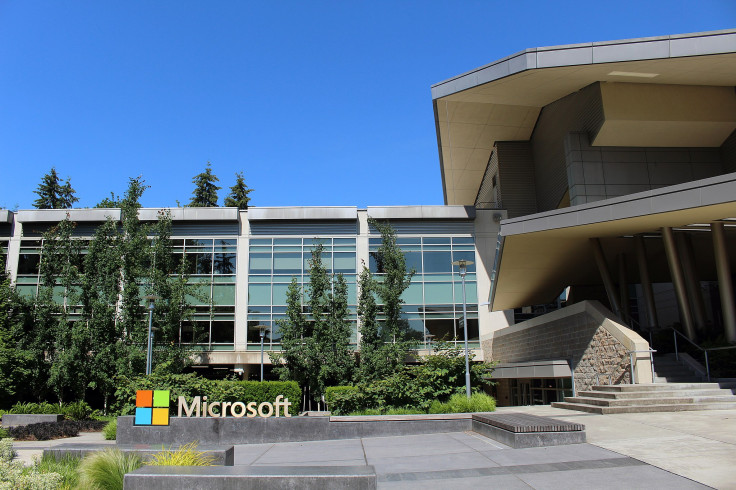Bing Search Gets Generative AI Captions Feature, Here's What It Does
The newly introduced Generative AI Captions feature is powered by OpenAI's latest LLM, GPT 4.

Microsoft has added a new feature dubbed Generative AI Captions to Bing Search. The feature offers customised snippets and summaries of individual web pages.
Microsoft recently rebranded Bing Chat to Copilot. Aside from this, the Redmond-based tech giant is rolling out new features to its Bing Search.
In a blog post, Microsoft said Generative Captions are powered by OpenAI's latest large language model (LLM), GPT 4. After analysing search queries, the feature extracts information from a webpage and presents them in what it describes as "easily digestible snippets".
Generative Captions will be different for every query and will probably generate unique snippets based on what the user is looking for. Microsoft also clarified that the feature isn't always likely to reflect the exact words used on the page since it generates these captions using a mixture of signals and techniques.
Furthermore, the company noted that website owners will have the option to opt out of Generative Captions by using the NOCACHE and NOARCHIVE tags. However, they might have to do this manually.
Microsoft also added a slew of new features to its Bing Webmaster tools. Now, website owners can see how much traffic they are getting from search queries and Bing Chat.
The latest Bing Search feature could turn out to be an alternative to Google's Notes feature for the search results and articles on Discover, which is part of Google Search.
Microsoft updates Bing Chat
According to an earlier report, Microsoft is planning to let users turn off Bing Chat's search engine. While the company has neither confirmed nor denied this speculation yet, it has updated the Bing AI chatbot service.
This update will restrict people from generating fake film posters such as those containing Disney's logo and help the company avoid copyright infringement, as per a report by The Register.
Social media users have been using AI to generate images of dogs as Disney characters for a while now. Much to their chagrin, the trend caught the attention of the entertainment giant.
I saw this morning Disney AI Poster Trend Drives Microsoft To Alter Bing Image Creator: Illustrations 297677818, 283175153, 291280580 © Stockeeco | https://t.co/ByTZ5ROdyU
— alasdair lennox (@isawthismorning) November 20, 2023
Microsoft is steering clear of the dog house after its… https://t.co/9gbzUMpLx1 👁 🪚 👉🏻 🌄
As a result, Microsoft decided to temporarily block the word "Disney" in people's prompts, according to a Financial Times report. While the ban has been lifted, Bing has reportedly stopped recreating Disney's wording or logo.
This incident has reignited controversy surrounding AI text-to-image models' ability to violate copyright. Apparently, these models were trained on protected IP and trademarks and are capable of accurately generating the content.
In one of the examples, a person asked Midjourney AI to generate an image of an "average woman of Afghanistan". Notably, the AI tool came up with an almost carbon copy of the iconic 1984 photo of Sharbat Gula, taken by American photographer Steve McCurry.
This is the best example I've found yet of how derivative AI 'art' is. The person who generated the image on the left asked Midjourney to generate 'an average woman of Afghanistan'. It produced an almost carbon copy of the 1984 photo of Sharbat Gula, taken by Steve McCurry. 1/ pic.twitter.com/D0FDbqrcPA
— Anwen Kya 🏳️🌈🏴 (@Kyatic) November 16, 2023
Artists and illustrators, who have sued companies building AI text-to-image tools argue that the software can directly rip off their work and copy their styles. The defendants, on the other hand, believe it is imperative to protect AI-generated images under fair use since the images simply transform original works rather than replace them.
Microsoft now lets you uninstall Edge, Bing, Cortana
It will be interesting to see whether Microsoft will introduce stricter rules for using its AI image creator. In the meantime, the company has rolled out a new update for Windows users in Europe, allowing them to uninstall some of its basic apps including Cortana, the Edge browser and Bing Search.
It is worth noting that Microsoft is not rolling out this update to provide a superior user experience or to let users decide which app they want to get rid of. Instead. the tech behemoth is making this change to comply with The Digital Markets Act (DMA).
DMA, which was announced by the European Union, urges Microsoft to give its users the option to remove all basic apps. This act is slated to come into effect in March 2024 in the European Economic Area (EEA).
© Copyright IBTimes 2025. All rights reserved.






















